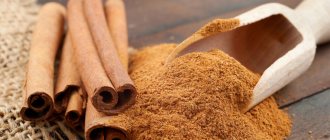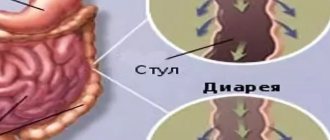The unpleasant odor has a medical name - halitosis. The reasons for its occurrence may be different, but if there is no time to find out, then it is better to immediately move on to eliminating the symptom itself.
Some available remedies, which you will learn about in this article, will help you quickly get rid of bad breath.
You can check the freshness of your breath in the following ways:
• a pink, coat-free tongue confirms the freshness of your breath;
• put a teaspoon in your mouth, let it dry a little and then smell it;
• lick your wrist, wait a little and smell.
Causes of putrid odor
Most people believe that the cause is lack of or poor personal hygiene. Actually this is not true.
You can brush your teeth after every meal, but within a couple of minutes after brushing, the unpleasant stench will reappear.
To understand why this happens, here are the possible reasons:
- caries;
- untreated teeth;
- dental plaque, stone;
- imbalance of microflora;
- gingivitis, periodontitis and other gum inflammations;
- improper filling;
- fungal infections of various etiologies;
- stomatitis;
- inflammation of the salivary gland;
- pathological processes in the gastrointestinal tract;
- improper care of the oral cavity and removable dentures;
- diseases of the ENT and respiratory organs (bronchitis, sinusitis, rhinitis, pleurisy);
- frequent consumption of foods that emit sulfur compounds (onions, garlic, cheeses, some types of table wines);
- unbalanced diet;
- nicotine or alcohol addiction.
Features of xerostomia
If the mucous membrane becomes less moisturized after eating spices, garlic, black tea or coffee, there is no cause for concern. In most cases, after drinking a small amount of liquid, the discomfort goes away. However, if such symptoms are regular, you should undergo a comprehensive examination.
Salivation is an essential component of a healthy mouth. Saliva performs many tasks:
- moisturizes the oral mucosa;
- protects against ulcerative formations that may occur when eating food;
- removes dead cells from the surface of the tongue;
- protects teeth from remineralization;
- neutralizes acids produced by tartar;
- cleanses the mouth of food debris;
- takes part in digestive processes.
Lack of production of this substance is considered a pathology that causes serious damage to health.
A disease accompanied by insufficient salivation is called xerostomia. As this disease develops, dead cells and food particles accumulate in the mouth and produce dangerous compounds that have a repulsive odor. Almost every tenth inhabitant of the planet suffers from this disease, especially for older people.
Xerostomia is common in older people
Dryness is often accompanied by the following symptoms:
- constant feeling of thirst;
- sticky saliva;
- the appearance of hoarseness;
- formation of cracks in the corners of the mouth;
- sticking of the tongue to the palate;
- irritation of the mucous membrane;
- “unpleasant” breathing;
- difficulty speaking;
- dulling of taste receptors;
- inadequate hydration of the nasal sinuses;
- pain in the throat;
- the formation of a reddish coating on the tongue.
Dry mouth combined with any of the above symptoms is evidence of xerostomia.
Women are more susceptible to this disease compared to men
Diagnosis of pathology
Detection of any disease begins with the collection of tests.
The foul odor that comes from the mouth should not just be masked with chewing gum and aromatic rinses, but its root cause should be eliminated.
First of all, you need to determine where the problem lies: in the oral cavity, gastrointestinal tract or respiratory system.
At home, you can find out whether there is any rotten breath at all. There are several effective ways:
- Cup your palms near your nose and breathe heavily. A closed space will allow you to accurately determine the freshness of your breath.
- Run a small spoon over your tongue and smell the collected plaque.
- Lick your own wrist, wait for the saliva to dry, and inhale the scent.
If you detect the presence of an unpleasant odor, you will need to contact your dentist and have your oral cavity diagnosed for the presence of pathologies.
The diagnostic complex may include:
- comprehensive dental examination;
- visit to a gastroenterologist;
- radiography;
- Ultrasound of the abdominal cavity;
- taking tests to identify pathologies (blood, feces, urine, stomach contents);
- gastroscopy, etc.
Unpleasant odor in children and adolescents
A noticeable foul odor in a child can also occur due to various reasons, based on his age and health status. To answer the question of why this happens, it is necessary to determine how often the symptom occurs. If its manifestations are one-time, it is necessary to track the factors that provoke such episodes. They could be:
- lack of hygiene;
- eating spicy food;
- advanced caries;
- runny nose.
In this case, to eliminate the stench, you must either eliminate contact with pathogens that cause bad odor, or cure the diseases that cause it. One way or another, such circumstances are temporary.
There are also constant factors that signal the occurrence of dangerous diseases that affect the condition of the child’s body. These include:
- oral candidiasis caused by a fungus;
- sinusitis in the chronic stage;
- deviated nasal septum;
- hyperglycemia;
- loss of baby teeth.
A fetid odor may appear in a baby due to problems with the microflora in the oral cavity.
Know! In children and adolescents, an unpleasant odor most often occurs due to damage to the ENT organs, less often due to dental diseases or problems with the gastrointestinal tract.
Eliminating rotten smell
Elimination methods directly depend on the cause of its occurrence:
- removal of decayed teeth, supragingival and subgingival deposits, tartar, filling;
- therapeutic treatment of decreased salivation;
- treatment of diseases of the gastrointestinal tract, ENT organs;
- restoration of microflora.
In addition, there are methods that are accessible and useful for every person, regardless of diagnosis. Let's take a closer look at them.
Oral hygiene
It is recommended to carefully monitor oral hygiene. Rules familiar to everyone from childhood:
- Brushing your teeth 2 times a day for at least 3-4 minutes.
- Cleaning the tongue and cheek area.
- Using special hygiene products to rinse and clean the interdental space after each meal.
- Eating sweets no more than 2 times a day.
Diet
If there are no contraindications, support your body with vegetables.
If the diagnosis showed that you are healthy, but your breath still smells rotten and rotten, you need to adjust your diet.
Basic Rules:
- Drink enough fluids, as normal water balance allows the body to produce the right amount of saliva to naturally cleanse the mouth.
- Include fruits and vegetables in your diet such as apples, carrots, broccoli, spinach, and Brussels sprouts.
- Complete refusal or reduction in consumption of foods that provoke fermentation and putrefactive processes in the stomach (fried, spicy, smoked, sweets, pasta, white bread, butter, alcohol, legumes).
Traditional methods
If your breath smells unpleasantly of rotten meat, traditional medicine can help. Among the most popular means are the following:
- Chew the coffee beans for a few minutes.
- Rub the gums with the pulp of a fresh walnut. This option combines several useful functions: a pleasant nut aroma + gum massage + filling the gums with vitamins.
- Eat an apple or carrot. The dense pulp perfectly cleanses the interdental space, removes plaque and freshens breath with the natural aroma of fruits and vegetables.
- Chew your favorite aromatic herb. For these purposes, everyone’s favorite dill, parsley, as well as exotic tarragon, anise, cilantro, and savory are suitable.
The presented options are not a treatment, but will only help temporarily eliminate unpleasant odors and freshen your breath.
Drug treatment
A person who smells unpleasant should strive to eliminate the cause as soon as possible. Even if this means taking pills prescribed by your doctor.
Most often, unpleasant odor is treated with medications for the following diseases:
- gastritis – “Gastal”, “Gaviscon”, “Omez”;
- rhinitis – “Flixonase”, “Nasophane”, “Dexamethasone”;
- stomatitis – “Nystatin”, “Vivorax”, “Cholisal”;
- fungal diseases - Fluconazole, Terbinafine, Diflucan.
Video: Causes and removal of foul odor.
Treatment methods, depending on the identified cause
To effectively combat xerostomia, it is necessary to use medications and alternative medicine, depending on the identified cause. Only targeted actions can eliminate dry mouth quickly and for a long time.
Medicines and traditional methods
Taking into account the specific disease, use:
- Inhalations with preparations based on herbal components (Vitaon). Such manipulations have worked well for dry mouth.
- Vitamins. When vitamin deficiency is detected, complex formulations are used (Alphabet, Complivit, Supradin).
- Cold medicine. To eliminate dry mouth and fight rhinitis, products such as Snoop, Rinostop, and Sanorin are used.
- Phytoestrogens. Women need them during menopause; they are most often used by Inoklim, Qi-Klim, and Feminal.
- Drugs with an immunomodulating effect. To increase the degree of body resistance, Imudon is used.
- Agents that enhance saliva production. Pilocarpine and Salajen cope well with this task.
- To moisturize the oral cavity, a gel made on the basis of polymers, Biotene silicone, is prescribed.
- Preparations that are substitutes for saliva. Hyposalix is used to combat xerostomia.
- Sprays with antibacterial action (BioXtra). Thanks to the formation of a special film on the teeth, it is possible to use these products to fight caries, as well as dry mouth.
- Hydrating preparations that help normalize electrolyte balance. This is Trihydron, Regidron.
Vitaon
Alphabet
Complivit
Supradin
Snoop
Rhinostop
Sanorin
Inoclim
Qi-klim
Feminal
Imudon
Pilocarpine
Salajen
Biotene
Hyposalix
BioXtra
Trihydron
Regidron
Among the folk methods, the most popular and effective are:
- Eating hot red pepper. This product is great for promoting saliva production.
- Using lemon, grapefruit and papaya juice. The use of these fruits can significantly increase salivation and prevent dry mouth.
- Herbal tinctures with an antiseptic effect. Rinsing with echinacea, sage, chamomile, and calendula helps eliminate discomfort in the oral cavity.
- A solution of salt and soda, prepared at the rate of ½ tsp. Each component in one glass of water prevents dry mucous membranes.
https://youtu.be/yskbxbxGtMg
Prevention measures
Preventive measures include:
- use of high-quality toothpastes and mouth rinses;
- regularly replacing your toothbrush with a new one (at least once a month);
- visiting the dental office for a preventive examination at least once every six months;
- replacing your favorite sweets with juicy fruits with low acidity.
To ensure that the problem of bad breath never affects you, you need to constantly carry out preventive oral hygiene.
Etiology of xerostomia
The causes of dry mouth have not yet been systematized. For convenience, experts divide them into 2 groups:
- Pathological. Associated with the presence of a specific disease.
- Non-pathological. They are determined by the specifics of diet and lifestyle.
As a rule, xerostomia is provoked by harmful addictions and an unbalanced diet.
Pathological causes
Dry mouth is caused by many diseases. Xerostomia can be both the main symptom of the disease and its partial manifestation.
Table 1. The most common pathologies accompanied by dry mouth
The following diseases can also cause dryness:
- hormonal imbalance;
- hypertonic disease;
- arthritis;
- cystic fibrosis;
- HIV;
- stroke;
- Parkinson's and Alzheimer's diseases;
- mumps.
Of all these diseases, xerostomia manifests itself most strongly in diabetics.
If you experience prolonged dryness and bad breath, you should have your blood tested for sugar.
Non-pathological causes
Most of the “causative agents” of dry oral mucosa are isolated in nature and are caused by everyday habits.
Xerostomia in most situations indicates dehydration of the body, provoked by a violation of the drinking regime. If the problem is not resolved in a timely manner, it can cause serious damage to the body.
Table 2. Most common non-pathological causes
Constant breathing through the mouth, caused by a runny nose, and stress can also cause dry mucous membranes.











